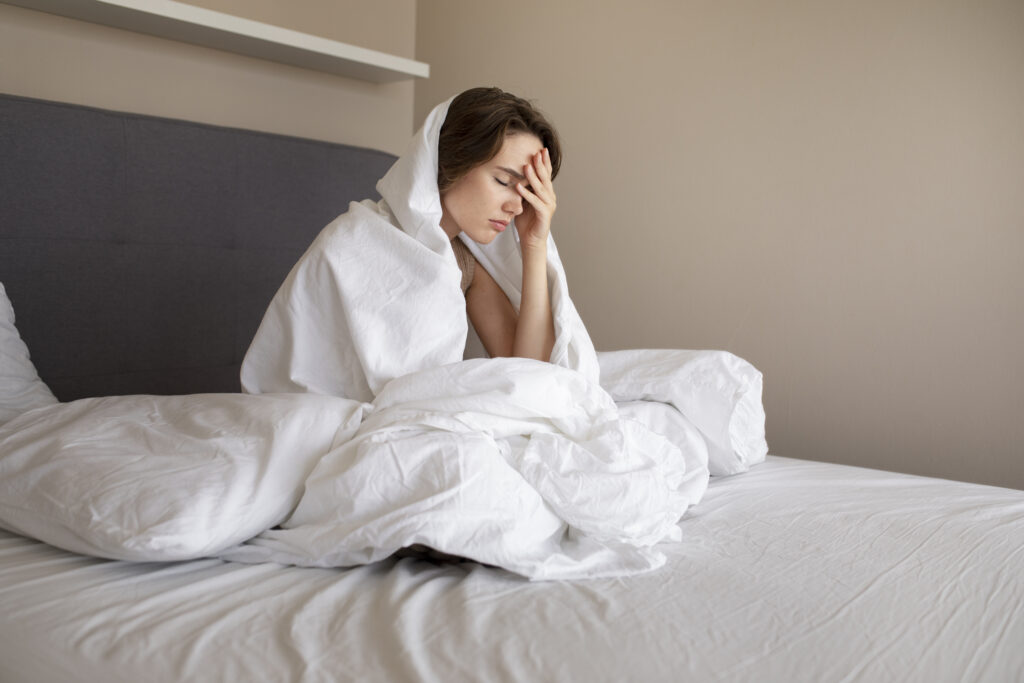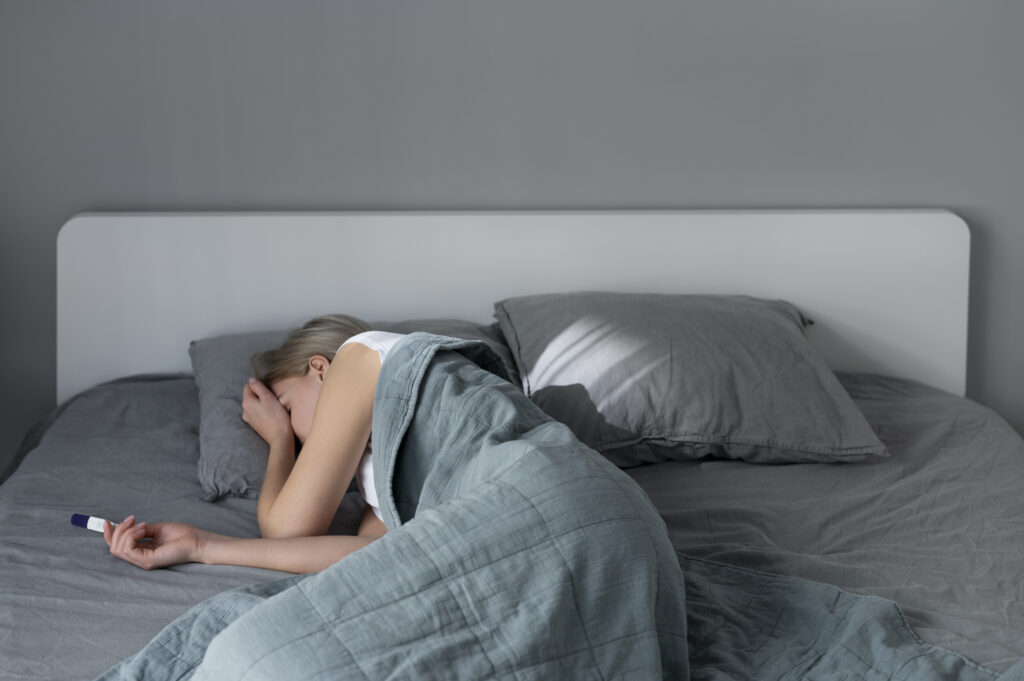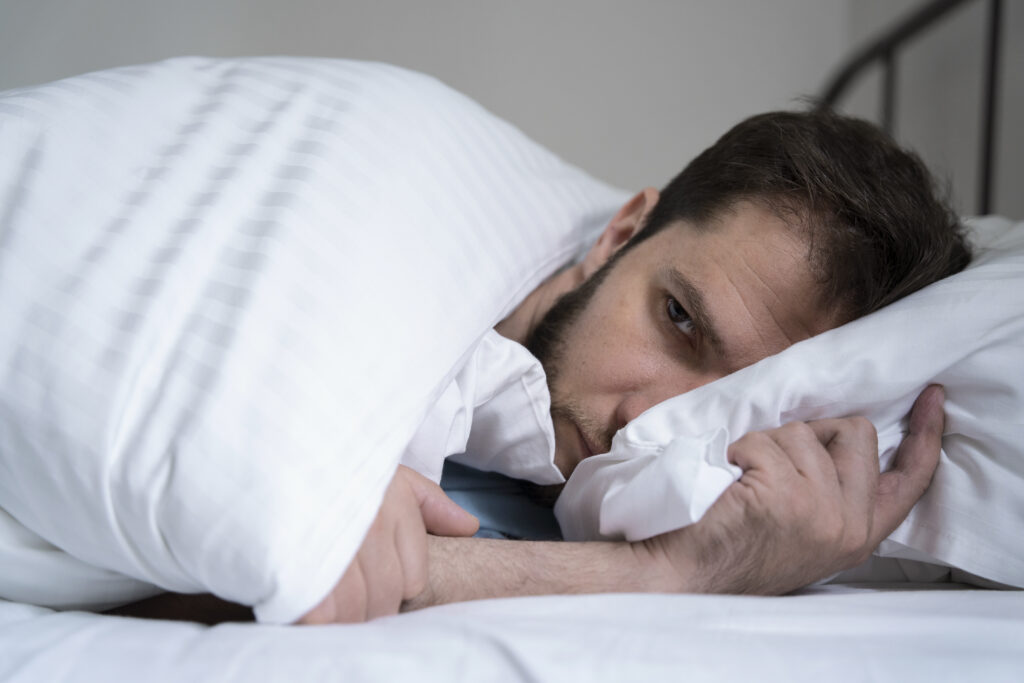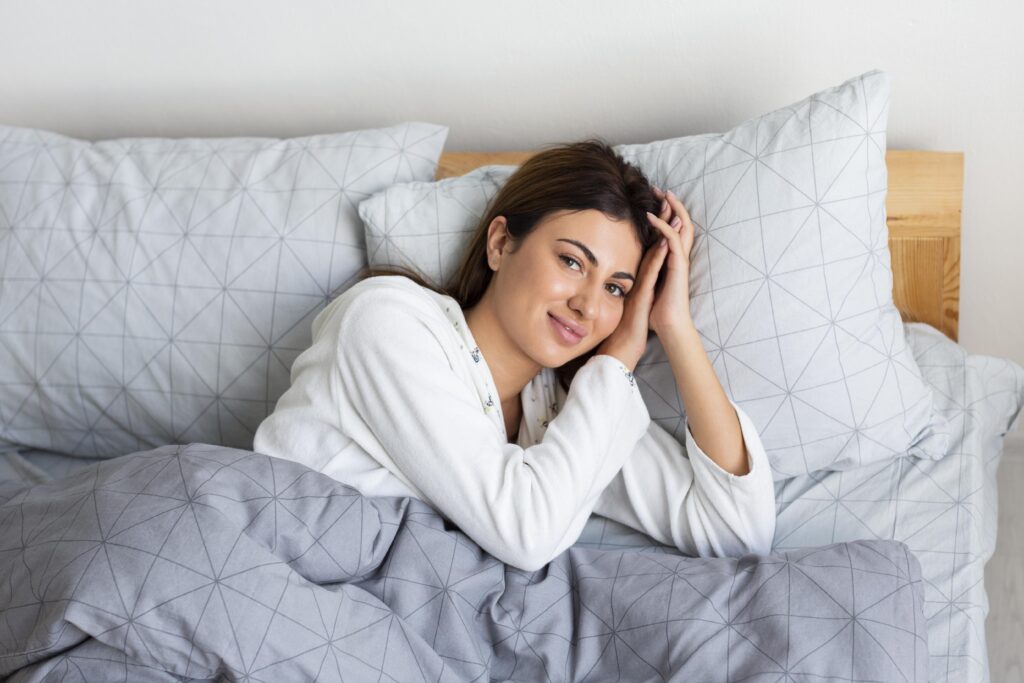
Sleep is important for overall health and well-being. It is not only a period of rest but also essential for maintaining physical, mental, metabolic, and cardiovascular health. It helps in hormone balancing and increases the longevity of life.
Sleep disorders are medical conditions that hinder the normal sleep cycle, affecting the ability to fall asleep, stay asleep, or achieve restful sleep. These disorders can cause excessive daytime sleepiness, fatigue, and other physical and mental health issues.
According to the World Health Organization (WHO), approximately 30% of adults have sleep disturbances, with insomnia being the most common. Additionally, sleep apnea affects 5-10% of the adult population, illustrating the widespread incidence of these conditions.
Table of Contents
ToggleHere are the main types of sleep disorders:
- Insomnia
- Sleep Apnea
- Restless Leg Syndrome (RLS)
- Narcolepsy
- Circadian Rhythm Disorders
- Parasomnias
- Hypersomnia
- Sleep-related Movement Disorders
- Behavioral Sleep Disorders
Here are the explanation of each sleep disorder:
1. Insomnia
Insomnia is a common sleep disorder in which individuals have difficulty falling and staying asleep.It can be caused by stress, anxiety, depression, or lifestyle habits such as caffeine consumption and irregular sleep schedules. Insomnia can cause daytime tiredness, difficulty concentrating, and irritability, all of which can have an impact on daily life and health.
2. Sleep Apnea
Sleep apnea is a serious condition in which a person’s breathing frequently stops and starts while sleeping. This can result in loud snoring and gasping for air throughout the night. Symptoms include excessive daytime sleepiness, headaches, and difficulty concentrating. Untreated sleep apnea raises the risk of high blood pressure, heart disease, and other health issues.

3. Restless Leg Syndrome (RLS)
Restless Leg Syndrome is defined by an uncontrollable urge to move the legs, particularly when at rest. People with RLS frequently experience uncomfortable sensations in their legs, making it difficult to relax or fall asleep. Stress, fatigue, and certain medications are all common triggers.Lifestyle changes, stretching, and applying heat or cold to the legs can all help.
4. Narcolepsy
Narcolepsy is a neurological disorder that causes excessive daytime sleepiness, making it difficult to stay awake throughout the day. People with narcolepsy may have sudden sleep attacks, where they fall asleep unexpectedly at inappropriate times. This can disrupt daily activities and increase the likelihood of an accident. Lifestyle changes and medications are frequently used in treatment to help manage symptoms.
5. Circadian Rhythm Disorders
Circadian Rhythm Disorders occur when a person’s internal body clock is misaligned with their external environment. This can occur as a result of shift work, jet lag from crossing time zones, or irregular sleep schedules. People may have difficulty sleeping at night and staying awake during the day, resulting in fatigue and other health issues. Adjusting sleep patterns and getting enough natural light can help reset the body’s clock.
6. Parasomnias
Parasomnias are a group of sleep disorders characterized by unusual sleep behaviors such as sleepwalking, night terrors, talking while sleeping, and bedwetting. These events typically happen during the transition between sleep stages or when you wake up. People who have parasomnias are often unaware of their actions and may not remember them the next day. While parasomnias are typically harmless, they can disrupt sleep and, in some cases, pose a safety risk. Stress, sleep deprivation, and certain medications are all potential causes, and treatment may include improving sleep hygiene or managing underlying conditions.
7. Hypersomnia
Hypersomnia is a sleep disorder defined by excessive daytime sleepiness despite getting adequate or long hours of sleep at night. People with hypersomnia frequently struggle to stay awake during the day and may feel the need to nap frequently, which can disrupt their daily activities. Sleep apnea, narcolepsy, and certain medications are all possible causes. It may also be linked to poor sleep quality or neurological issues. Treatment usually consists of addressing the underlying cause, which may include lifestyle changes or sleep-related medications.

Causes of Sleep Disorders
- Lifestyle Factors: Everyday habits such as high stress levels, unhealthy eating patterns, and a lack of physical activity can disrupt sleep. Stress over stimulates the nervous system, and a poor diet (particularly high caffeine or sugar intake) can disrupt sleep. Sedentary lifestyles result in low energy expenditure, making it difficult to feel tired before bedtime.
- Medical Conditions: Chronic pain, such as arthritis or migraines, can make it difficult to fall and stay asleep. Anxiety and depression are common mental health issues that cause restlessness, racing thoughts, or difficulty relaxing, all of which have an impact on sleep. Hormonal changes, particularly in women during menopause or pregnancy, can disrupt sleep patterns.
- Environmental Factors: Loud noises, bright lights, or an uncomfortable sleeping environment (e.g., too hot or cold) can disrupt normal sleep patterns. Even minor interruptions, such as using electronic devices before bed, can reduce melatonin production, making it more difficult to fall asleep.
- Genetic Predisposition: If you have a family history of sleep disorders like insomnia or sleep apnea, you may be more likely to develop them. Genetics can influence how the body regulates its sleep-wake cycles, increasing the likelihood of having sleep problems.
Symptoms of Sleep Disorders
Common Signs to Look Out For:
- Fatigue: Persistent tiredness and lack of energy, even after a full night’s sleep.
- Irritability refers to increased moodiness and frustration over minor issues.
- Difficulty Concentrating: Trouble focusing, memory issues, and decreased cognitive function during the day.
- Mood Changes: Anxiety, depression, or mood swings as a result of poor sleep quality.
Treatment Options
- Improving sleep disorders frequently begins with lifestyle changes, where good sleep hygiene—such as sticking to a consistent sleep schedule and developing a relaxing bedtime routine—is critical.
- Natural remedies, such as herbal supplements like valerian root and chamomile, as well as relaxation techniques and meditation, can help improve sleep quality.
- For chronic insomnia, Cognitive Behavioral Therapy for Insomnia (CBT-I) is an extremely effective treatment that addresses negative sleep-related thoughts and behaviors.
- Medical treatments for sleep apnea, such as CPAP machines, can help regulate breathing, and medications may be used for more severe cases, but only under professional supervision.

Preventive Measures
To maintain good sleep health, it’s critical to practice healthy habits like regular exercise, a balanced diet, and stress-reduction techniques like meditation or yoga. These factors contribute to the body’s natural sleep-wake cycle, making it easier to fall and stay asleep. Furthermore, creating a sleep-friendly environment is essential, which includes keeping the bedroom dark, quiet, and at a comfortable temperature. Limiting screen time before bed and sticking to a regular sleep schedule can also lead to better, more restful sleep.
FAQs
Insomnia, sleep apnea, restless leg syndrome, narcolepsy, and circadian rhythm disorders are among the most prevalent sleep disorders.
Symptoms of a sleep disorder include difficulty falling or staying asleep, excessive daytime sleepiness, snoring, breathing pauses during sleep, or feeling unrefreshed even after a full night of rest.
Sleep disorders can be caused by a variety of factors, including stress, medical conditions (such as chronic pain and mental health issues), poor lifestyle habits, genetics, and environmental factors like noise or light.
Sleep disorders are frequently diagnosed using a combination of medical history, physical examinations, sleep questionnaires, and sleep studies (such as polysomnography).
Lifestyle changes, cognitive behavioral therapy for insomnia (CBT-I), medications, and medical devices such as CPAP machines for sleep apnea are all potential treatments. Natural treatments and relaxation techniques can also help.